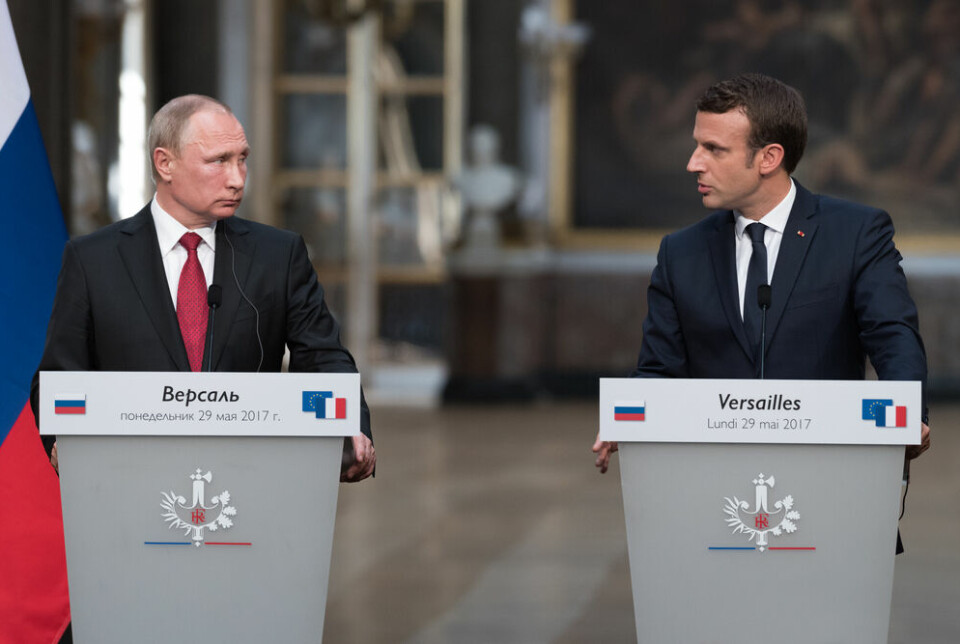Russia - but not Putin - to be part of D-Day commemorations in France
Russians who contributed to the Allied victory should be honoured without ‘outcast’ president, a Russian history expert says
Emmanuel Macron has "considerably hardened his position towards Russia” in recent months, Russian expert Professor Emilia Koustova has said
Frederic Legrand - COMEO/Shutterstock
France will not invite Russian President Vladimir Putin to the 80th anniversary commemorations for the Normandy landings, although Russia is still likely to be represented, it has emerged.
The 80th anniversary events are set to take place on June 8 to commemorate the pivotal ‘D-Day’ military operation of June 6, 1944.
The government organising group la Mission Libération announced on April 16 that Mr Putin would not be invited in light of what it called the continued “war of aggression”, against Ukraine, and worsening relations between France and the Russian president.
Read also: Russia, Ukraine, Gaza: Key points of Macron’s latest TV interview
‘Hardened position towards Russia’
“We are in a very tense situation between France and Russia, even before we consider the situation on the Ukrainian front,” said Professor Emilia Koustova, a member of Mémorial France, and specialist professor in history and Russian civilisation at the University of Strasbourg.
“Emmanuel Macron has considerably hardened his position towards Russia,” she told FranceInfo in an interview.
‘Putin has become an outcast’
Despite the tensions between the countries, the lack of invitation to Mr Putin could be considered surprising, as he was invited to the 70th anniversary memorial events in 2014, despite having invaded Crimea months earlier.
“This development shows that [Mr Putin] has really become an outcast,” said Prof Koustova.
"This shows the extent to which, in 2014, people were not yet aware of the seriousness of the situation, and the fact that a real war was being waged in Eastern Europe between Russia and Ukraine,” she said.
‘A way to represent people who contributed’
The professor said that the development means that the government and memorial agencies should consider new ways of including Russia - and the people in the Soviet Union who fought in World War Two - without inviting the Russian leader.
"I think that this commemoration could indeed give rise to another way of representing Russia, but also all the other nations, all the other peoples who contributed within the Soviet Union to the Allied victory,” she said.
“We might imagine a representation that would give space and a place to civil society, and also to the men and women who brought about this victory in 1945.”
Prof Koustova said that these people’s “history and memory are now being used, manipulated and falsified by the Russian authorities", and stressed the difference between the people of Russia and the country’s leadership.”





























